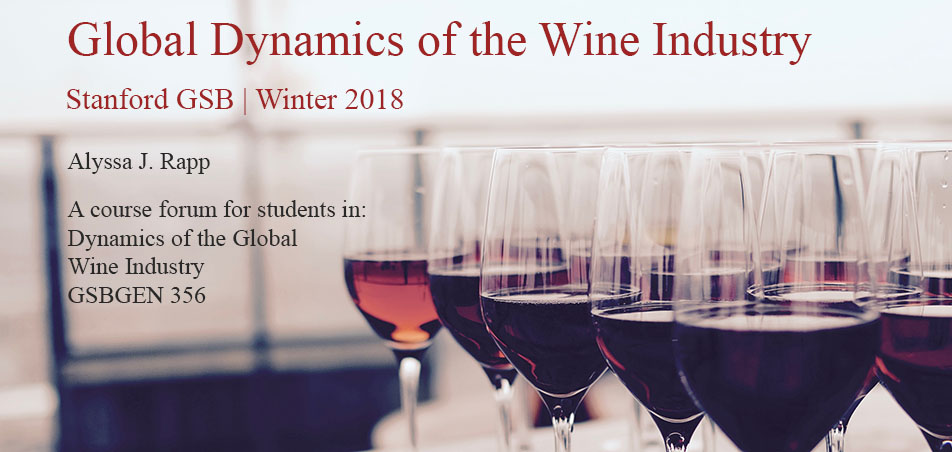Plain and simple, I like wine. I like to taste it, drink it, and learn about it. Each wine is a fingerprint with a unique story that transports me to a region of the world in a sip. I cannot imagine a better way to spend my short time at Stanford and in this unique wine region then to learn about business through the lens of the wine industry from a leading expert.
I'm amazed at how the wine industry exploded in the U.S. and wine appears to have become an inelastic good. How do companies like Costco and Trader Joe's bring terrific wines to market at lower costs under their own labels? How does Cooper's Hawk grow its market share, purchase grapes harvested around the world and manufacture under its own label in Illinois of all places? Sometimes I study the shelves at Trader Joe's and think there is a large portion of the wine consuming population that is simply going for the least expensive wine and cares little for quality. I suspect there is evidence to support this.
Now that we know 90 percent of wine sells for less then $10.00 per bottle, what makes a great wine at that price point? In the case of the $10.00 bottle, how does a brand distinguish itself and make a profit, and what makes a $100.00 bottle worth it? Distribution is a mystery to me and sounds like it could be fun work. Yet the distribution process coupled with regulatory constraints seem like one of the many gatekeepers between success and failure when working to expand a brand. I could go on with inquiries, but I'm delighted to have the opportunity to credibly quench my many wine curiosities through this course.
